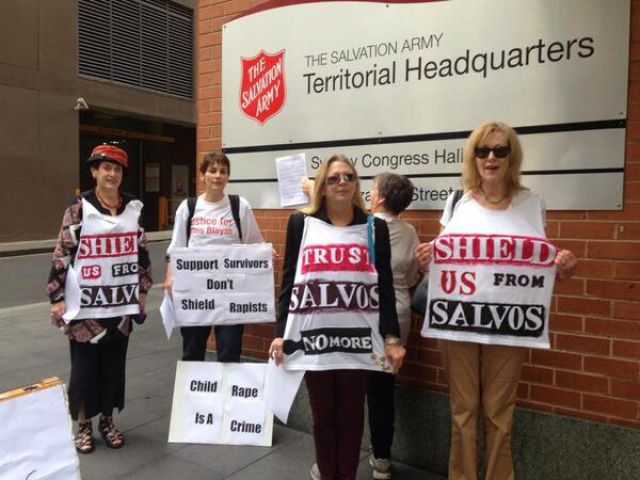
The Royal Commission into the Institutional Responses to Child Sexual Abuse has asked for another $104 million from the federal government to hold hearings until the end of 2017.
The commission has released an interim report, for which they held more than 1600 private sessions and received more than 1600 written accounts from survivors of sexual abuse.
By the end of May, more than 160 allegations had been referred to police. There is a backlog of more than 1000 people wanting to be heard and more people keep coming forward. The commissioners have identified about 70 cases of institutional abuse that require a public hearing.
Aletha Blayse, the daughter of Lewis Blayse, a child victim, told Green Left Weekly: “Under the glare of the Royal Commission, the institutions will have to lift their game, but they will have to be pressured to do it. They will need to be forced either by legislation or by conditions being attached to funding for social services.
“Half the money, at least for the Salvation Army, comes from government funding. There is enough evidence now for the institutions to be making amends but they use the excuse of waiting for the final Royal Commission report.”
One of the most brutal institutions was Bindoon Boys Home in Western Australia, an orphanage run by the Christian Brothers, where physical punishment and sexual assault were inflicted on child migrants.
Key perpetrator Brother Paul Kearney, who was described as a “monster” by Lewis Blayse, is now dead. The Catholic Church erected a statue to him, but his head was knocked off soon after, so angry were his victims.
The institutions being investigated are the Catholic Church, the Salvation Army, YMCA, Marist Brothers, the Anglican Church, the Scouts and Swimming Australia.
The commission shifted its focus to Swimming Australia in early July. It heard how Swimming Australia responded to allegations that swimming coach Scott Volkers abused children he had coached.
Three young swimmers, Julie Gilbert, Kylie Rogers and Simone Boyce complained that Volkers molested them in the 1980s. Volkers denies the claims.
In 2002, Volkers applied to become head coach of the National Women’s team while he was still facing indecent assault charges. The next day the Queensland Director of Public Prosecutions (DPP) dropped the charges and Volkers was appointed.
However six months later, in April 2003, the Queensland Crime and Misconduct Commission condemned the DPP handling of the case after public outcry. A NSW senior prosecutor Margaret Cunneen reviewed the case in 2004, but advised the NSW director of DPP that the charges were trivial.
During the course of this investigation, no one spoke to the three young women. In 2009, Volkers was refused a blue card in the state of Queensland to work with children, but he remained on the payroll of Swimming Australia until 2010 when he moved to Brazil to coach young women in that country.
Abuse victims allege Swimming Australia put the interests of winning medals ahead of the welfare of children. The three women testifying at the Royal Commission described their mental breakdown, eating disorders, anxiety, and alcoholism as a result of the abuse and the swimming officials’ refusals to believe them.
The sexual assault victims are asking for compensation for the impact it has had on their lives. Blayse said the 20-year statute of limitations is a problem. Victims want to get rid of this in the case of sexual abuse since often it is years before the victims can face what happened to them and talk about it.
Civil litigation is also a problem as the institutions can use the Ellis defence, which says that institutions cannot be sued, only the individuals who carried out that offence. The Catholic Church successfully used this defence, setting a precedent that can apply to all institutions.
Blayse told GLW the cases are hard to win because of memory loss, affordability and legal obstacles. Some victims are carrying out class actions but this does not always work out with payouts as low as $20,000-$40,000 after medical and legal expenses.
Blayse believes the compensation process should be taken out of the hands of the institutions and put into that of independent experts under government regulation.
Facebook has been “fantastic for victims, as self-help groups can begin to contact friends and victims who were together in the institution when they were children. Someone remembers where they are living now,” said Blayse.